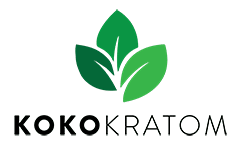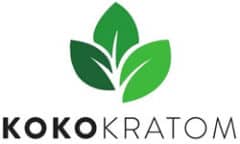FDA Ban on Kratom – What Does it Mean for You?
The legality of kratom around the world seems to change overnight, with Thailand finally legalizing Mitragyna speciosa for medicinal purposes and Indonesia considering a discontinuation of kratom exports. What is the FDA’s stance on kratom and what does this mean for you? Continue reading to find out.
Understanding The U.S. Drug Schedule
The United States currently manages permissions and restrictions on drug possession, sale, use, and research by means of the Controlled Substances Act and the Drug Enforcement Administration’s official drug schedule. Drugs placed in the most restrictive category on this list’Schedule I’are described as having a ‘high potential for abuse and no currently accepted medical use.’
In August of 2016, the DEA announced its intention to place kratom on Schedule I of the list of controlled substances’effectively creating a total kratom ban across the nation. Due to an enormous public outpouring of support for kratom, this intention was shelved and has not been reopened since. Kratom advocates argued that kratom provided them with an effective alternative to prescription painkillers and a way to ease withdrawal from opioids such as heroin with minimal side effects.
The FDA & Kratom
In contrast to the DEA, the Food and Drug Administration’s job is to consider applications to approve new food products, prescription drugs, biological products (vaccines and blood products), and health supplements. The idea is that a new product must demonstrate its safety vis-a-vis public health through laboratory analyses and/or clinical trials and, once accepted, must continue to meet certain standards.
While the FDA cannot propose a kratom ban as such (banning drugs and their constituent chemicals depends on their placement on the drug schedule), their article on kratom advises readers against taking the herb due to its ‘potential for abuse’ and also warns companies against making medical claims about the product or selling this ‘non FDA-approved’ kratom product for human consumption. By refusing to study and approve kratom and kratom-based pharmaceuticals, the FDA effectively keeps it in the informal market and off pharmacy shelves where it could be better standardized and regulated.
The American Kratom Association & Kratom Advocacy
Seeking to improve the FDA kratom situation, the American Kratom Association is campaigning to have state-based bans on kratom replaced with the Kratom Consumer Protection Act (KCPA) to ensure safe and reliable kratom for all.
In the United States, kratom cannot currently be shipped to:
- Wisconsin
- Rhode Island
- Indiana
- Alabama
- Arkansas
- Vermont
Other states such as Ohio have proposed FDA-influenced kratom bans but have not yet put them into action. The KCPA would place seven key requirements on the kratom industry in participating states, including:
- State-based product registration
- Minimum age of 18 or 21 for purchase
- Clear labeling requirements
- No adulteration with other substances
- No synthetic alkaloids added
- A maximum of 2% total alkaloid content being composed of 7-hydroxymitragynine
- Warning labels about possible drug interactions and not to consume during pregnancy
What The FDAs Kratom Stance Means for You
If you live in a state where there is a kratom ban, unfortunately, you won’t be able to buy, sell, or possess this herb unless those laws are changed. If you live in a state where kratom is legal (but unregulated), make sure you purchase only pure kratom that is tested for contaminants such as heavy metals, with alkaloid content clearly stated on the label.
At Koko Kratom, we offer some of the most well-tested and clearly labeled kratom on the market so that you can choose and use your kratom responsibly. Please note that our kratom is not FDA approved for human consumption and we make no medical claims about our kratom. Contact us for fast customer support and enjoy same-day shipping when you shop our kratom powders online.




